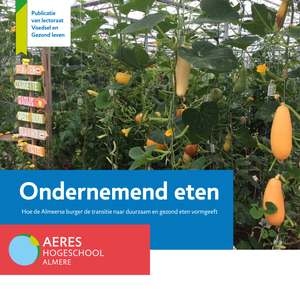De PDCA- of Demingcyclus is het hart van de kwaliteitskunde en heeft haar nut bewezen. Het is echter geen panacee, datin alle culturen en op alle tijden even bruikbaar is. Met nanme in andere dan westerse culturen in tijden van snelle veranderingen voldoet Plan-Do-Check-Act niet.
DOCUMENT

THE PDCA-CYCLE MIGHT NOT BE APPLICABLE in situations where change is unplanned or emergent. In situations of planned change the Deming cycle is used worldwide and proven to be very effective. However in an emergent change process the PDCA might not be the applicable. These emergent changes increase. In those cases, like Lao Tzu said: ‘A good traveller has no fixed plans, and is not intent on arriving’. Studying cultures that have another view on planning might help to find a new approach that fits in times of emergent change. Experiences in Africa lead to a new model for change called ACCRA (c). It also has reflection-in-action as its core. But it requires attention to people, considering the context and showing commitment as well along the whole process. This article describes the design and first experiences with a new approach for improvement in emergent change processes.
MULTIFILE

Power point on the questions one can pose regarding the usability of the PDCA cycle in times of transition.
MULTIFILE
Hoe moet ik handelen op moment X, bij bedrijf Y, in context Z?
DOCUMENT

Ghanaian farmers suffer from a decline in cocoa production partly due to damages and diseases from insect pests. To increase predation by bats on insects on the cocoa plantations we installed two different types of bat boxes on 15 plantations around the village of Buoyem. Bat activity, bat species composition (numbers of insectivorous and frugivorous bats) and insect abundance were measured before and after bat box installation. Insectivorous bats were present on all ofthe sampled plantations, namelyleaf-nosed bats (Hipposideros sp.), slit-faced bats (Nycteridae sp.), horseshoe bats (Rhinolophus sp.) and vesper bats (Vespertilionidae sp.). Furthermore, no correlation between insect abundance and bat activity could be detected. The bat boxes were not occupied yet during the research period since rainy season started in the second half of the measurements and bat activity decreases with increasing precipitation which is supported by our Un dings. Additionally, the available time period between in stallation and measuring of the effects of the boxes was very short when compared to similar researches. Bats alsohave different preferences per species for size and shape of bat boxes and the number of naturally available roosting sites also influences bat box occupancy. Our results suggest that bats are abundant above cocoa plantations in Buoyem and therefore bat boxes have the potential to be ahelpful tool in insect pest control.
DOCUMENT

Times change and we change with them. Our world is changing rapidly and radically. Education institutions need to prepare and support students in becoming knowledgeable, concerned and internationally competent world citizens. The Hague University of Applied Sciences (THUAS) has made World Citizenship and Internationalization their institutional focal points. The Research Group International Cooperation generates and disseminates knowledge that supports those policies. So this volume gives an overview of some of the work done in the Research Group International Cooperation. More is to be found on our website: www.thehagueuniversity.com/research/overview-research-groups/international-cooperation/ about-the-research-group.
DOCUMENT

Welke verschillende rollen speelt de burger in de transitie naar een duurzamer en gezonder voedselsysteem? Dat is de centrale vraag van deze publicatie, voortkomend uit het onderzoek van de promovendi van het lectoraat Voedsel en Gezond Leven aan Aeres Hogeschool Almere, in samenwerking met masterstudenten en andere onderzoekers. Met deze publicatie geven de promovendi je graag een inkijkje in de laatste ontwikkelingen en de diverse kanten van Almere.
DOCUMENT

From the article : "Based on a review of recent literature, this paper addresses the question of how urban planners can steer urban environmental quality, given the fact that it ismultidimensional in character, is assessed largely in subjective terms and varies across time. A novel perspective of urban environmental quality is proposed, simultaneously exploring three questions that are at the core of planning and designing cities: ‘quality of what?’, ‘quality for whom?’ and ‘quality at what time?’. The dilemmas that urban planners face in answering these questions are illustrated using secondary material. This approach provides perspectives for action. Rather than further detailing the exact nature of urban quality, it calls for sustainable urban environmental quality planning that is integrated, participative and adaptive" ( wileyonlinelibrary.com ) DOI: 10.1002/eet.1759 - Preprint available for free download.
DOCUMENT

Rob Brons, voorzitter van het College van Bestuur van De Haagse Hogeschool van 2010 tot 2014, heeft grote interesse voor de toekomst van leren en de rol van het hbo daarin. Vanuit die interesse initieerde hij in 2012 een onderzoek met als vraag: ‘Wat is de toekomst van leren en welke rol speelt de hogeschool daarin?’ dat werd uitgevoerd door Rianne Valkenburg, lector Designerly Innovation, met een multidisciplinaire groep studenten van De Haagse Hogeschool. Bij het afscheid van Rob Brons is vrijwel dezelfde vraag voorgelegd aan alle lectoren: ‘Welke veranderingen signaleer je in de samenleving op het terrein van je lectoraat en wat betekent dat voor het hbo?’ [
DOCUMENT

De African Digital Rights Network (ADRN) heeft een nieuw rapport gepubliceerd waarin de toevoer en verspreiding van digitale surveillance technologie in Afrika in kaart is gebracht. Onderzoeker Anand Sheombar van het lectoraat Procesinnovatie & Informatiesystemen is betrokken bij het ADRN-collectief en heeft samen met de Engelse journalist Sebastian Klovig Skelton, door middel van desk research de aanvoerlijnen vanuit Westerse en Noordelijke landen geanalyseerd. De bevindingen zijn te lezen in dit Supply-side report hoofdstuk van het rapport. APA-bronvermelding: Klovig Skelton, S., & Sheombar, A. (2023). Mapping the supply of surveillance technologies to Africa Supply-side report. In T. Roberts (Ed.), Mapping the Supply of Surveillance Technologies to Africa: Case Studies from Nigeria, Ghana, Morocco, Malawi, and Zambia (pp. 136-167). Brighton, UK: Institute of Development Studies.
MULTIFILE
